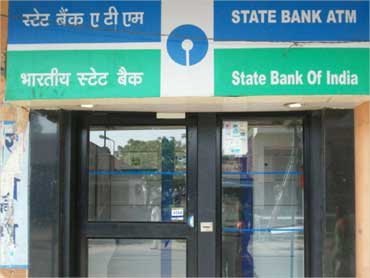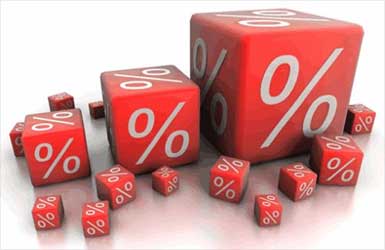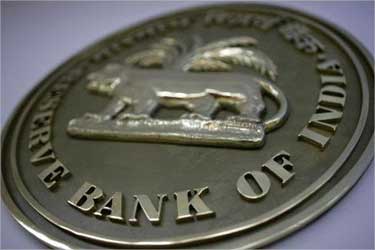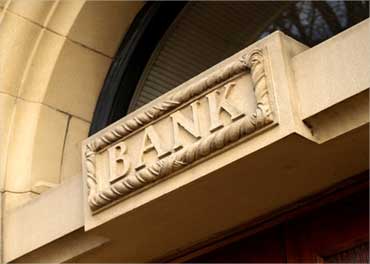 | « Back to article | Print this article |
SBI to make loans dearer, others to follow suit
State Bank of India (SBI), the country's largest lender, is set to increase its base rate - the benchmark rate for all loans - by 25 basis points. Top SBI officials said the rate hike may happen even before the Reserve Bank of India's (RBI's) annual policy review scheduled for May 3.
SBI's base rate, which is at 8.25 per cent, is the lowest among major banks. Most other public sector banks have set their base rates at 9.5 per cent.
The base rate of ICICI Bank, which is the largest private sector lender, is at 8.75 per cent.
Click on NEXT to read more...
SBI to make loans dearer, others to follow suit
Bankers said other banks will increase their base rates if SBI goes ahead with the proposed hike.
"We (SBI) are looking at revising the base rate. We need to increase it as the cost of funds has gone up. The decision will be taken in the asset-liability committee meeting this month," an official said, adding this is necessary to protect net interest margins (NIMs). A 25 basis points rate hike is a possibility, he added.
According to the official, the cost of funds has gone up as the bank offered high rates for deposits, both for retail and bulk deposits, in the last couple of months.
Most of the banks had offered higher rates on deposits during the last quarter of the previous financial year to meet their yearly targets.
Besides, offering home loans at a lower rate has exerted additional pressure on SBI's margin.
Click on NEXT to read more...
SBI to make loans dearer, others to follow suit
Banks were also funding their deposit base via certificates of deposits (CDs) at high rates in the last quarter of 2010-11.
According to the latest RBI data, banks issued over Rs 70,000 crore (Rs 700 billion) of CDs in the fortnight ended March 11, 2011.
This was at a time when short-term rates were hovering around the 10 per cent level.
The increase in cost on the liabilities side will eat into margins, if not passed to the customers.
According to a report by ICICI Securities, the full-quarter impact of higher lending rates and subsequent deposit rate hike by banks in the third quarter will be felt in the last quarter.
Click on NEXT to read more...
SBI to make loans dearer, others to follow suit
"We had expected NIMs (of SBI) to come off gradually, by 40 bps over the next four quarters. However, the pace of increase in system deposits implies that the NIM compression can be greater and could be front-loaded as well.
Although SBI has raised retail deposit rates since June 2010 to a near-peak level of 9.25 per cent, the full impact of this has not yet filtered through into deposit costs," a report by Morgan Stanley said.
SBI's NIM was at 3.40 per cent in the first nine months of 2010-11.
Click on NEXT to read more...
SBI to make loans dearer, others to follow suit
Banks have resisted a rate hike since RBI's policy rate hike of 25 bps in mid-March.
With inflation hovering around 9 per cent, much above the comfort zone of the central bank, more hikes in policy rates are expected.
Tighter liquidity conditions in the coming days may also push up interest rates.
Goldman Sachs had said in a recent report that liquidity may remain tight due to government borrowing, high credit-deposit ratio and a weaker balance of payments.





